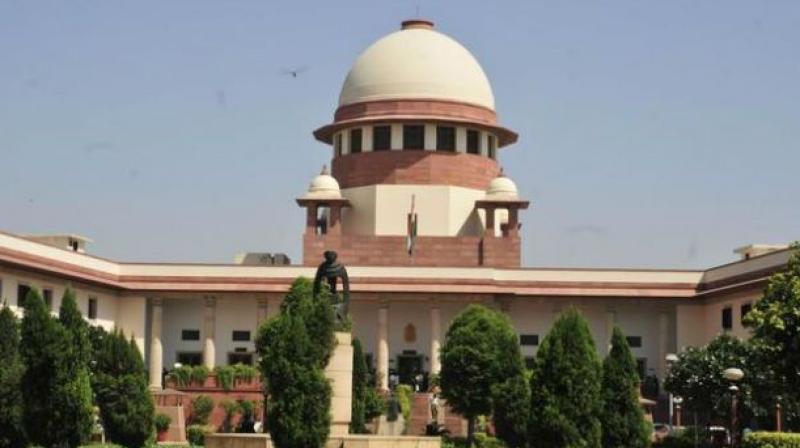Judiciary fissures: SC must act transparently

An unfortunate situation appears to have developed in the Supreme Court, suggestive of the fact that fissures may exist among judges of India’s highest court. This seems to have been exacerbated by apparent divisions within the Supreme Court Bar Association, some of whom may be dissatisfied with the court’s current leadership, as became apparent in a dramatic hearing on Friday.
This is a pity and has the effect of lowering the respect the country has for the Supreme Court, although from time to time judges of high courts, and occasionally even of the Supreme Court, have been objects of whispers. As with other forums, these whispers pertain to corruption.
Last week, senior advocate Kamini Jaisawal filed a petition urging that Chief Justice of India Dipak Misra recuse himself from hearing a case in which an allegedly shady former high court judge had lent his services to the management of a Lucknow medical college to challenge its debarment by the Medical Council of India. Hearing the petition, a two-judge bench of Justice J. Chelameswar, the most senior judge after the CJI, and Justice Abdul Nazeer posted this for hearing by a five-judge Constitution Bench headed by the CJI.
The following day, CJI Mishra took exception to this, appropriately citing procedures to say that only the head of the Supreme Court could allot benches for hearings, and overturned the two-judge bench’s decision. After that, the CJI also said the practice of “hearings” to determine the urgent taking up of matters that couldn’t brook delay would henceforth be directly under the CJI. The second judge — Justice Chelameswar — had so far been handling this area. It doesn’t take much to divine that the CJI and his number two are not on the same page.
While this isn’t desirable, what should never be compromised in the our highest court is dispensation of justice in a transparent manner. The CJI has given no room for speculation or doubt that he could be influenced by extraneous considerations in the matter brought by Ms Jaisawal or the primary matter pertaining to alleged corruption by a former HC judge. The CJI has, in fact, constituted a three-judge bench to hear Ms Jaisawal’s petition.
Given the overall circumstances, or even in order to give no room for misrepresentation of the situation in any form and to reinforce the reputation of the country’s highest court, it would be ideal if the CJI took no part in the hearing of the case of the former HC judge which is linked to the matter of the debarment of the impugned medical college in Lucknow. Let all concerned desist from muddying the waters.

